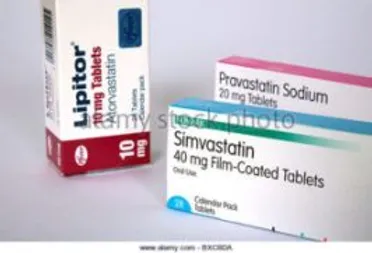About eight years ago, my then-doctor did a routine blood test to determine my numbers for cholesterol, triglycerides, homocysteine, and those other markers they rely on to assess your health, particularly of the heart. Aha! My LDL cholesterol – you know, the “bad” kind – was 145.
“I’m going to put you on a statin,” he said.
I almost went through the ceiling. “No you’re not putting me on any statin drug,” I almost shouted. And I began lecturing this physician about the deleterious effects, and lack of benefits, of that class of pharmaceuticals.
This was a really kind-hearted doctor, and I felt badly afterward. I printed out an abundance of literature on studies and alternative opinions by highly credentialed doctors and research scientists that statin drugs are dangerous, and do not prevent or cure heart disease. On my next visit, I handed them to him, and apologized for my previous outburst, acknowledging that many doctors likely would have ordered me from the office and dropped me as a patient. (In fact, two doctors did drop me later — not for being obstreperous, but for my refusal to take warfarin, i.e. rat poison, for the rest of my life to prevent blood clots; I successfully self-treat with nattokinase.)
Selling statins

Dr. David Brownstein
Doctors across America routinely put patients on these drugs because they have been indoctrinated with the myth that lowering your cholesterol below 200, or even 180, is necessary for heart health. And, of course, the most effective way to do that is with statins. Why do they believe this? Because that’s what they are taught in medical school. Might that instruction have something to do with the financial support of these schools by the pharmaceutical industry, including the makers of statin drugs?
But a few of the brightest and most independent-oriented doctors have become disillusioned with the lessons they were taught about cholesterol, saturated fat and statin drugs. One is Dr. David Brownstein, director of the Center for Holistic Medicine in West Bloomfield, Mich. He has been doing his own research for many years, and is the author of numerous books on a variety of medical subjects.
In his August newsletter, Brownstein wrote about yet another statin study, this one showing that people who took statins didn’t live as long as statin teetotalers. I’d read about a previous study with similar findings, but this one provides the complete data.
Statin’ the facts
The doctor reported on a piece in the May 22 issue of the Journal of the American Medical Association Internal Medicine. Among people aged 65 to 74 who took a statin, the scientists found an 18 percent increase in deaths due to all causes. Deaths from all causes were 34 percent greater in people aged 75 and older if they used statins than if they didn’t.
The statin and nonstatin groups had no significantly different rates of heart disease. In other words, “‘No benefit was found when [a statin medication] was given for primary prevention in older adults,’”
Brownstein quoted the study’s authors as concluding.
“Statins are the most profitable class of drugs in the history of Big Pharma,” Brownstein wrote, “and are routinely prescribed to elderly people, even though there is no evidence of reduction in strokes or heart attacks, or prolonged life span. This is another example of the failure of a popular class of medications that happens because doctors simply do no understand basic physiology and biochemistry, and are unable to read research critically.”
Brownstein continued: “I don’t understand how doctors continue to prescribe a medication that fails nearly everyone who takes it, and is associated with severe adverse effects. Statins should be avoided by all.”
In a previous newsletter, Brownstein declared that prescribing of statin drugs ought to be adjudged malpractice. He’s written a book on the subject: The Statin Disaster.

